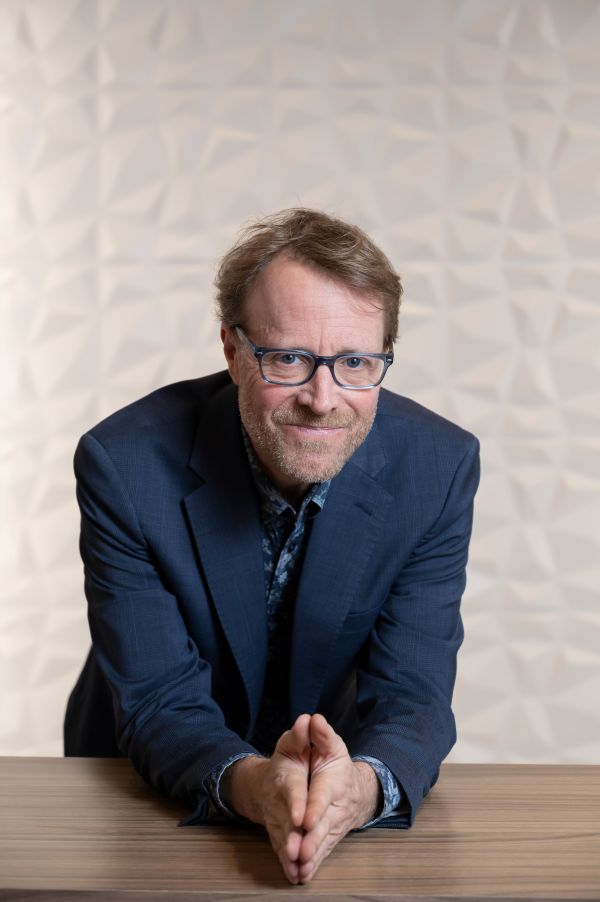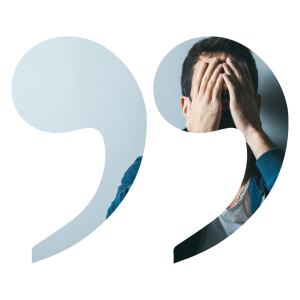
Alain Brunet

Post-Traumatic Stress Expert

The psychologist who fixes memory

Alain Brunet

Post-Traumatic Stress Expert

The psychologist who fixes memory
A Career Focused on Psychological trauma
Founder of Reconsolidation Therapy™

Areas of Expertise
Professor Alain Brunet has been studying post-traumatic stress for 30 years. He has developed an innovative psychotherapy to help individuals suffering from PTSD.
-
Director of the National PTSD Research Center (Thompson Institute, UniSC, Australia)
-
Professor, Trainer, and Supervisor
-
Founder of Reconsolidation Therapy™
Doctor of Psychology, specializing in mental health, Alain Brunet is globally recognized for his research on the treatment of victims who have developed emotional trauma.
Doctor of Psychology, specializing in mental health, Alain Brunet is globally recognized for his research on the treatment of victims who have developed emotional trauma.
Alain Brunet, PhD, currently leads the National PTSD Research Center (Thompson Institute, at the University of the Sunshine Coast, in Australia). He works to enhance our understanding of the neurobiology of PTSD and to advance the treatment of trauma- and stressor-related mental disorders. The Thompson Institute integrates a research facility, clinical services, and world-renowned training facilities all under one roof, enabling the rapid translation of advances in mental health research and PTSD treatment into practice.
Previously, he directed the Mental Health and Society research program at the Douglas Institute (Montreal) and was full Professor at the Psychiatry Department at McGill University (Canada).
Dr. Brunet has demonstrated through numerous clinical trials in humans that the emotional strength of a traumatic memory can be reduced in individuals who have developed PTSD. He developed Reconsolidation Therapy™, which can relieve patients of their trauma symptoms in 6 weeks, in 70% of cases.
In the aftermath of the November 13, 2015 attacks in Paris, he proposed to the French Hospital network (AP-HP) to use his therapeutic method to establish a large-scale system for treating PTSD patients, commensurate with the traumatic impact of the events. With the participation of 20 French hospitals, including the famous La Pitié-Salpêtrière, this enabled hundreds of patients to access and benefit from this unique protocol.
Distinctions
Léo-Pariseau career award (ACFAS)
2023
Canadian Psychological Association TSS excellence award 2022
2022
Expertscape : Top 1% world experts in Trauma and Stressor Related Disorders
Since 2021
Canadian Academy of Health Sciences (CAHS). Fellow
2019
GEO Magazine : Nominated among ‘the heroes that fight to change the world’
2018
McGill’s Principal’s Prize in Public Outreach Through Media
2017
Mission & Vision
Transform a traumatic memory into a simple bad memory.

Vocation
Alain Brunet's scientific vocation is not a matter of chance. In 1989, he was a student at the University of Montreal during the worst shooting in Quebec's history. A student entered the university heavily armed, killed 14 women, and injured 14 others, in the name of his hatred for feminism.
This dramatic event highlighted the lack of knowledge and improvisation by public authorities in managing the crisis and supporting victims with trauma-related disorders. Witnessing the improvisation surrounding the care provided in response to this event and being deeply concerned, as a student he chose to do his PhD in the field of post-traumatic stress disorder.


Mission
Like many others, Alain Brunet noticed that conventional extinction-based therapies were prone to relapse and did not lead to recovery in most trauma victims.
Starting in the 2000s, Alain Brunet became interested in the brain’s neuroplasticity, suggesting that memories can be modified. Based on this emerging animal research, he devoted his research to the development of a translational treatment that addresses the root causes of emotional disorders in individuals exposed to violent events (war, terrorism, assault, accident, rape, natural disasters).


Contribution
His work led to the publication in 2008 of the first randomized controlled trial pharmacological suggesting the reconsolidation impairment could be used as a novel way of quickly healing the emotional memory of PTSD sufferers.
Reconsolidation Therapy™ is a tremendous source of hope for PTSD victims, having empirically demonstrated its efficacy in their treatment. Brunet is now training other psychologists and mental health professionals in this method to help as many people as possible globally.

#ReconsolidationTherapy


Emmanuelle
«Before following Dr. Brunet's protocol, even the slightest mundane scene from daily life could revive my memories of the attack. I had knots in my throat, palpitations, headaches, sweats, and I would regularly break down. My nights were filled with insomnia and nightmares. I was unable to face public places, which prevented me from working as a saleswoman in a department store.
Now, after six weeks of treatment, I can go outside without flinching at every noise. I drive again without stress. I have returned to work and can handle the ambient noise of the crowd. I am enjoying walking in Old Nice and going for a drink on a terrace with friends. I can fall asleep without fear of having a nightmare. I have shed a part of a weight, which will allow me to move forward. I am confident about my future, even though I do not forget and it will always remain within me. »

Max
« After witnessing a war scene near his home at the Café de la Bonnebière, on November 13, 2015, Max returned 3 months after the end of his treatment, to the scene of the attack where five lives were taken under his eyes, where he could no longer put his feet back. He remembers Lucie to whom he helped. He gave her his hand, supported her before help arrived.
“I still have all the details in my head. On the other hand, what has changed for me is being able to talk about it without having this pain, this stress... I no longer have this film in my head which was playing in a loop day and night... without this treatment I think that I would have made a big mistake. I was considering screwing up!”
And I was afraid of public transport… When I saw a mass of people, it was haunting. [...] Today, I feel very good, it's day and night. The excess of my memories was taken away from me while still retaining it in my memory.” »

Richard
« Without exaggerating, I am amazed by the possibilities that this training has offered me in terms of the breadth and effectiveness of my abilities as a clinician to intercede in the difficult situations of my clients.
I have been practicing psychotherapy for 42 years and wish I could have incorporated this work into my treatment strategies before now.
The training was superb and of great educational value. (I myself taught for many years). After the training, I immediately contacted two clients to inform them of the possibilities offered by this forward-thinking approach.
THANK YOU very much! »

Marie-Anne
« I leave this training equipped, guided and well informed. I feel with a better sense of personal efficacy for intervening with PTSD, but also for the assessment and intervention of several other psychological health concerns.
I highly recommend this training which gives hope for recovery from PTSD. »
